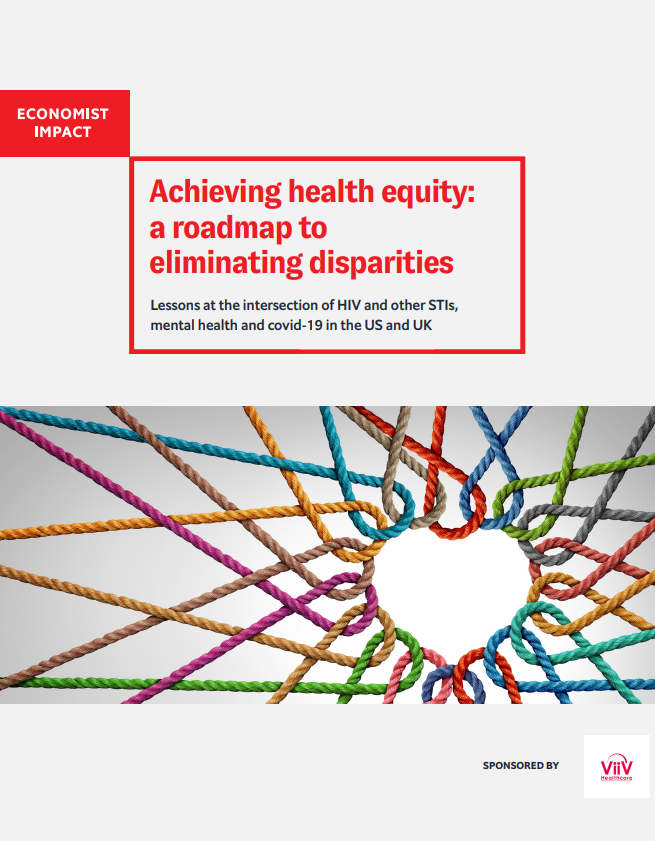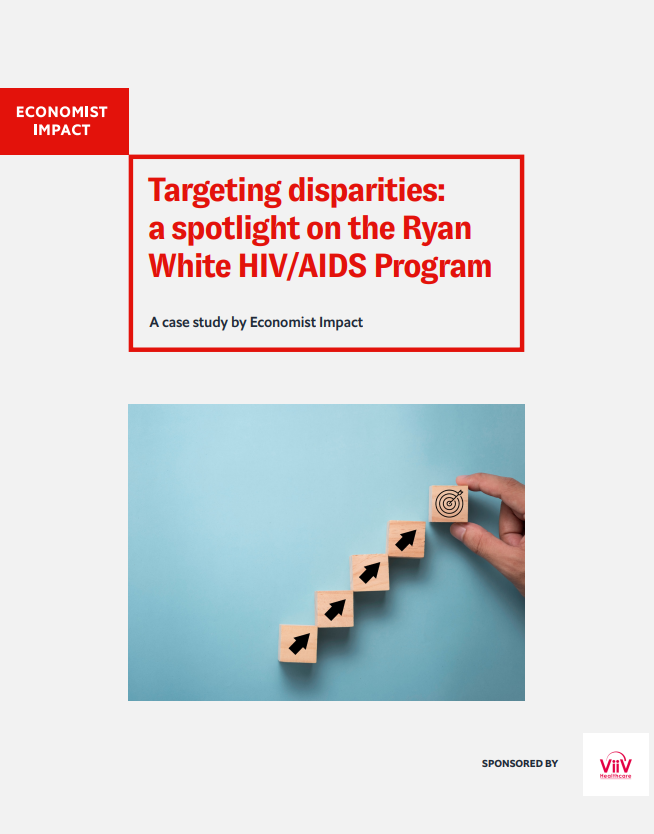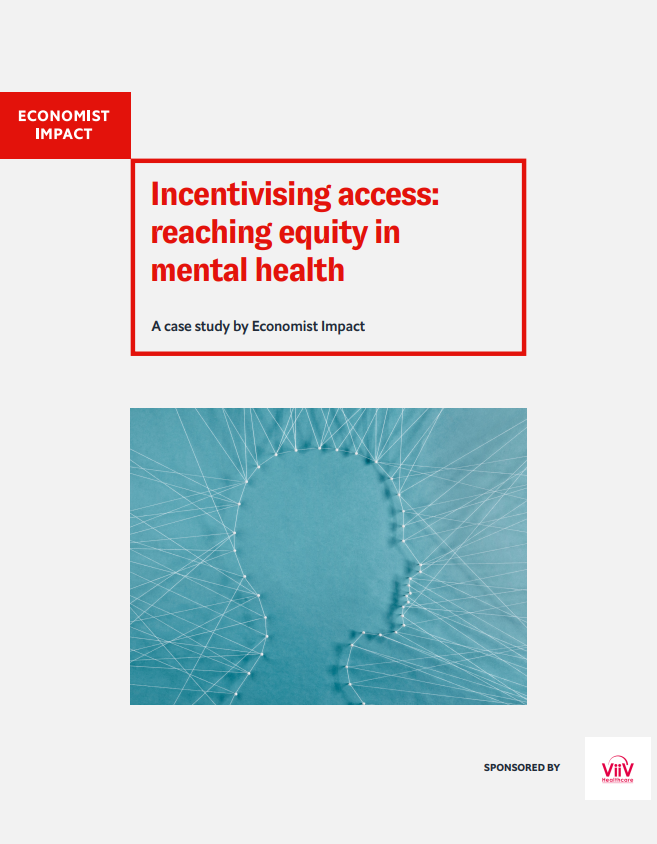 |
 |
 |
| Research Report | Achieving health equity | Case Study 1 | Targeting disparities | Case Study 2 | Incentivising access |
Health disparities are avoidable, unfair and cost us all
Health disparities are avoidable and unfair differences in the overall state of people’s health, their life expectancy and access to and quality of care for people in particular groups. The covid-19 pandemic has further exposed existing health disparities.
Disparities have a real, quantifiable impact on individuals and societies, yet they stubbornly persist. Economist Impact seeks to go beyond discussing health disparities, instead proposing clear, achievable ways to address them. In this project we explore the opportunities that eliminating health disparities in the UK and US over the next two decades—an ambitious, but manageable milestone—could create, focusing on covid-19, HIV and STIs, and mental health.
In our report, we set out a clearly defined, inclusive vision for health equity—defining which stakeholders need to be involved and what they can do to address health disparities. Two case studies further explore how to achieve health equity in HIV and AIDS through the Ryan White Program, and in mental health through the UK’s IAPT programme.
Less talk, more action: a clearly defined, inclusive vision for health equity
We are not the first to make a case for the pursuit of health equity, but to support action we identify the role of individual stakeholders and the actions they can take to achieve health equity. This creates both an impetus and a pathway for action on health disparities:
- The impetus—making the case for why we need to take action:
- Disparities in care are avoidable, unfair and cost us all.
- Disparities create unfair economic and social circumstances for individuals, communities and societies—creating fragility in health and social systems.
- Addressing health disparities is an urgent moral, social and economic priority.
- Without action, meaningful progress on societal health and economic goals is at risk and we remain vulnerable to threats like covid-19.
- The pathway—identifying the barriers that stand in the way and how to overcome them:
- Stakeholders and systems can either perpetuate or combat disparities. We lay out a clear route for various stakeholders to work cohesively towards health equity.
- Inaction can be as powerful as action. A shared, forward-looking vision is critical to success.
- Systems are slow to change because they are often incentivised not to. Addressing health disparities requires equity-focused targets and incentives for action.
- With a greater focus on equity-centred performance and targets, stakeholders and systems are more likely to both reduce disparities and achieve efficiency.





